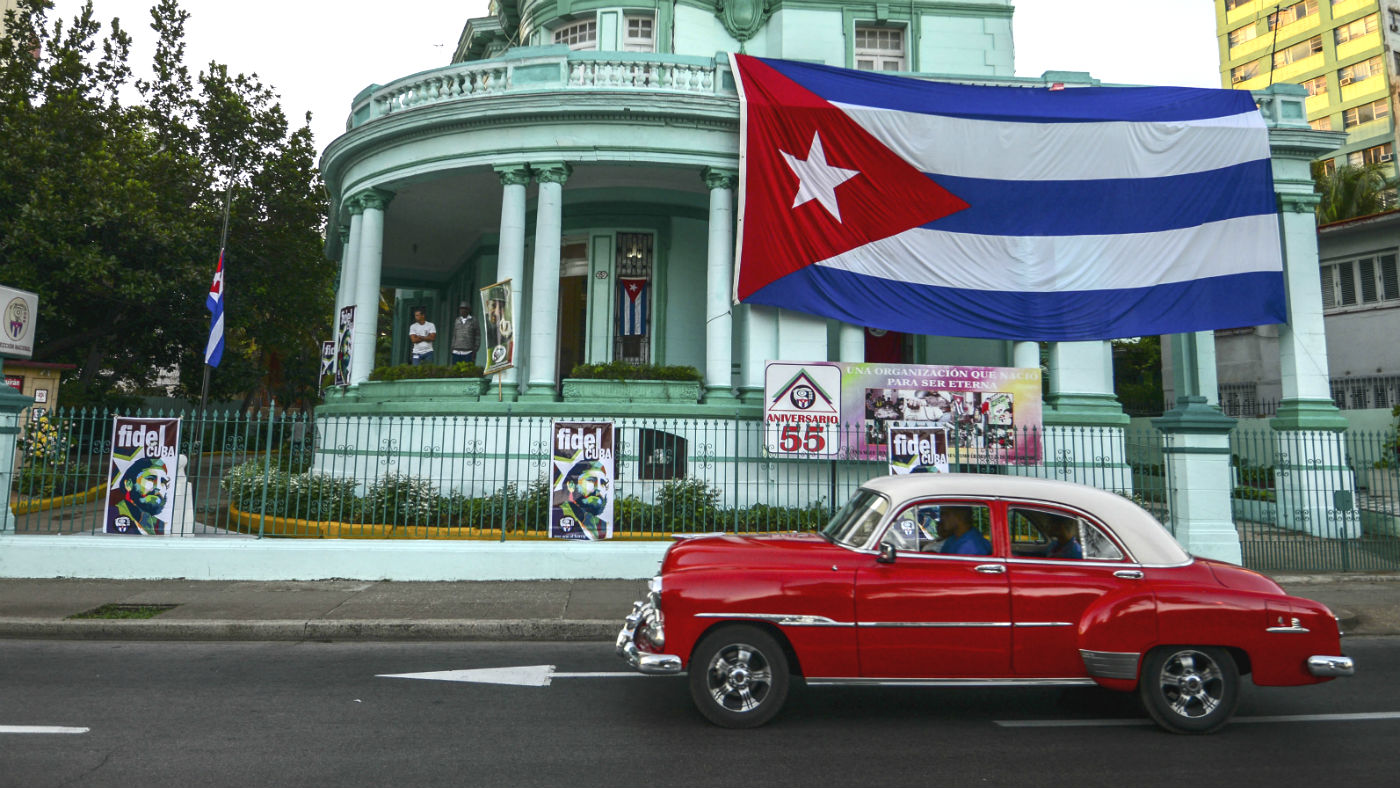Cuba to recognise private ownership
New constitution will open up the economy but maintain one-party system

A free daily email with the biggest news stories of the day – and the best features from TheWeek.com
You are now subscribed
Your newsletter sign-up was successful
Cuba will recognise private ownership of property for the first time in over half a century, as part of a new constitution drawn up by President Miguel Diaz-Canal that aims to drag the country into the 21st century.
According to the state newspaper Granma, the new constitution will overturn a ban on the buying and selling of homes brought in shortly after the revolution in 1959. In the past, Cubans were only permitted to swap homes, although money often changed hands.
Despite moves to liberalise and shake-up the housing market, foreigners will still be banned from owning property and the state will maintain the right to compulsorily repurchase property.
The Week
Escape your echo chamber. Get the facts behind the news, plus analysis from multiple perspectives.

Sign up for The Week's Free Newsletters
From our morning news briefing to a weekly Good News Newsletter, get the best of The Week delivered directly to your inbox.
From our morning news briefing to a weekly Good News Newsletter, get the best of The Week delivered directly to your inbox.
Reuters says that Cuba’s current Soviet-era constitution only recognises state, cooperative, farmer, personal and joint venture property, but former President Raul Castro’s market reforms, “aimed at trying to boost the economy and make Cuban socialism more sustainable, have prompted hundreds of thousands of Cubans to join the ranks of the island’s self-employed since 2010, in new privately owned businesses ranging from restaurants to beauty salons”.
The private sector now accounts for about 17% of the labour force.
Granma says the draft document, which will be voted on by the National Assembly this week, enshrines recognition of both the free market and private property in Cuba’s new Magna Carta, and could mean enhanced legal protections for Cuba’s fledgling entrepreneurs, and foreign investors.
However, “the one-party system of government is also certain to remain intact”, The Times says, enshrining a 2002 amendment to the constitution, drafted in response to an opposition-organised petition seeking free elections and the opening up of the economy, which declared that Cuba’s socialist rule was “permanent and irrevocable”.
A free daily email with the biggest news stories of the day – and the best features from TheWeek.com
One widely expected change will see presidential limits of two five-year consecutive terms imposed, as well as the reintroduction of the role of prime minister which was abolished in 1976.
-
 The mystery of flight MH370
The mystery of flight MH370The Explainer In 2014, the passenger plane vanished without trace. Twelve years on, a new operation is under way to find the wreckage of the doomed airliner
-
 5 royally funny cartoons about the former prince Andrew’s arrest
5 royally funny cartoons about the former prince Andrew’s arrestCartoons Artists take on falling from grace, kingly manners, and more
-
 The identical twins derailing a French murder trial
The identical twins derailing a French murder trialUnder The Radar Police are unable to tell which suspect’s DNA is on the weapon
-
 Trump’s fuel blockade puts Cuba in crisis mode
Trump’s fuel blockade puts Cuba in crisis modeIN THE SPOTLIGHT Plummeting tourism, scrambling airlines and rolling blackouts are pushing Cuban society to the brink
-
 Epstein files topple law CEO, roil UK government
Epstein files topple law CEO, roil UK governmentSpeed Read Peter Mandelson, Britain’s former ambassador to the US, is caught up in the scandal
-
 Iran and US prepare to meet after skirmishes
Iran and US prepare to meet after skirmishesSpeed Read The incident comes amid heightened tensions in the Middle East
-
 Israel retrieves final hostage’s body from Gaza
Israel retrieves final hostage’s body from GazaSpeed Read The 24-year-old police officer was killed during the initial Hamas attack
-
 China’s Xi targets top general in growing purge
China’s Xi targets top general in growing purgeSpeed Read Zhang Youxia is being investigated over ‘grave violations’ of the law
-
 Panama and Canada are negotiating over a crucial copper mine
Panama and Canada are negotiating over a crucial copper mineIn the Spotlight Panama is set to make a final decision on the mine this summer
-
 Why Greenland’s natural resources are nearly impossible to mine
Why Greenland’s natural resources are nearly impossible to mineThe Explainer The country’s natural landscape makes the task extremely difficult
-
 Iran cuts internet as protests escalate
Iran cuts internet as protests escalateSpeed Reada Government buildings across the country have been set on fire